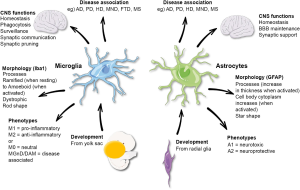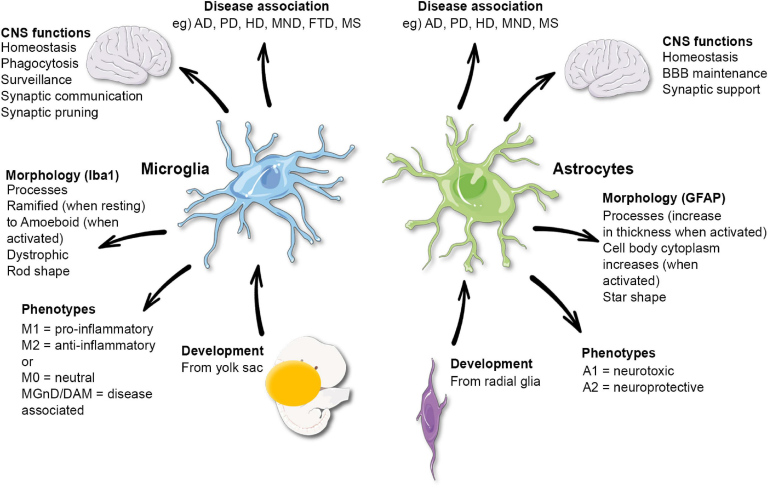In recent years, the devastating impact of funding cuts on medical research has sparked widespread concern among scientists and healthcare professionals alike. These medical research funding cuts, particularly those affecting federal grants like those from the NIH, threaten not only the progress of scientific discovery but also the safety of patients involved in clinical trials. Without adequate financial support, the crucial oversight provided by Institutional Review Boards (IRBs)—which ensures compliance and prioritizes patient safety in clinical trials—is jeopardized. Moreover, the collaborative medical studies that drive innovation and discovery may face significant delays, limiting our understanding and treatment options for pressing health issues. As resources dwindle, the future of medical research hangs in the balance, potentially putting countless patients at risk and undermining the integrity of the research community.
Amidst an ongoing debate, the financial constraints imposed on healthcare research have led to alarming reductions in available support for important scientific inquiries. These budgetary restrictions inhibit the ability to conduct thorough and ethical studies, where oversight is paramount in maintaining participant safety and trust. Funding limitations affect not only the operational aspects of research projects but directly impact the IRB’s capacity to uphold regulatory standards and ensure ethical practices. As collaborative initiatives struggle to secure the necessary funding, researchers are left at a crossroads—balancing the urgency to advance knowledge against the backdrop of dwindling financial resources. The ripple effects of these financial challenges could shape the future landscape of medical advancement and patient care in profound ways.
The Consequences of Medical Research Funding Cuts
The recent cuts to medical research funding have far-reaching implications for the landscape of clinical studies, particularly in how these changes threaten patient safety and ethical oversight. With over $2 billion in federal grants frozen, research teams across institutions like Harvard face significant disruptions, especially in collaborative efforts where patient safety is paramount. The inability to fund crucial studies not only halts progress in critical areas but also dismantles the frameworks—such as Institutional Review Boards (IRBs)—that ensure participants are adequately protected and informed. Without sufficient funding, the oversight roles essential to maintaining ethical standards in research risk becoming under-resourced or nonexistent.
Moreover, these funding cuts exacerbate existing challenges within the medical research community. The cash flow constraints can lead to delays in trials, potentially leaving vulnerable populations exposed to unmet health needs. With fewer financial resources, institutions may struggle to recruit participants or manage the logistics of multi-site studies, resulting in a widening gap between necessary treatments and their accessibility. The impact of these funding cuts cannot be overstated, as they threaten to reverse decades of progress made in ensuring rigorous oversight and patient welfare during clinical trials.
The Role of IRBs in Safeguarding Patient Safety
Institutional Review Boards (IRBs) play a vital role in protecting the safety and rights of patients who participate in clinical research. Through their meticulous review processes, IRBs ensure that studies adhere to ethical standards established by regulatory bodies. IRBs are tasked with evaluating study designs, assessing risks versus benefits for participants, and ensuring informed consent is adequately obtained and maintained. This level of oversight is particularly crucial in the context of collaborative studies funded by organizations like the NIH, where participants may be involved in intricate trials across multiple sites.
In an environment where funding cuts threaten the stability of research programs, the capacity of IRBs to function effectively is jeopardized. Without adequate financial support, IRBs may struggle to provide the thorough oversight that patients deserve. This lack of support could lead to increased ethical violations and a decrease in trust from the community towards medical research. It is imperative for stakeholders to advocate for sustainable funding models that recognize the essential role of IRBs in protecting participants and maintaining the integrity of medical research.
Funding Challenges for NIH and Their Impact on Research
The National Institutes of Health (NIH) serves as a cornerstone of medical research funding in the United States. However, recent cuts have sparked widespread concern regarding the continuation of important research initiatives. NIH funding is not merely a financial transaction; it is an investment in the wellbeing of society through advancements in health care. As grant opportunities dwindle due to funding restrictions, the implications grow dire for scientific innovation, particularly in fields majorly dependent on sustained financial support.
Moreover, the reductions in funding will directly affect collaborative medical studies that rely on the pooling of resources across multiple institutions. Without adequate funding from the NIH, researchers may be forced to prioritize individual studies over collaborative efforts, which are vital for comprehensive understanding and treatment of complex health issues. This shift not only hampers collaborative advancements but it can also lead to wasted resources, as each institution struggles to ensure compliance and oversight independently. Ultimately, patients may bear the brunt of these decisions, as their access to potentially life-saving treatments becomes increasingly restricted.
Collaborative Medical Studies: Importance and Current Status
Collaborative medical studies are essential in our pursuit of medical breakthroughs, particularly in fields dealing with complex health issues that require a multi-faceted approach. These studies allow researchers from various institutions to share knowledge, resources, and methodologies, optimizing the potential for innovative therapies and drug development. However, with the recent federal funding cuts, many collaborative studies are facing serious hurdles, including halted research, postponed timelines, and limited participant recruitment.
The implications of disrupted collaborative efforts extend beyond mere delays; they can undermine public trust in the research process. When studies are curtailed or shown to lack financial backing, prospective participants may hesitate to enroll, fearing that their safety and well-being are not prioritized. Additionally, this situation makes it increasingly difficult for communities to remain engaged in research, potentially leading to a cycle of mistrust and disengagement. Thus, fostering an environment that encourages collaboration through adequate funding is crucial for the success of future medical advancements.
The Historical Context of Medical Research Ethics
Understanding the historical context of medical research ethics is paramount, as past transgressions have shaped the rigorous guidelines we see today. The advent of Institutional Review Boards (IRBs) was largely a reaction to egregious examples of unethical research practices over the decades. Events like the Tuskegee Syphilis Study and unethical trials conducted during World War II have cemented the necessity for protective measures, aiming to prevent similar future violations of patient rights and safety.
Today, the ethical landscape requires constant vigilance, especially as funding cuts threaten to dismantle the very structures designed to protect research participants. History teaches us that the lack of oversight can lead to significant harm, reinforcing the need for dependable and sufficient funding sources to uphold ethical standards in both scientific inquiry and patient protection. Stakeholders must learn from the past to ensure that we do not regress into a space where patient safety is compromised for the sake of cutting costs.
The Role of Community Engagement in Research
Community engagement is increasingly recognized as a critical component of successful medical research. Collaborative efforts that actively involve community members not only enhance the trust between researchers and participants but also lead to more relevant and meaningful research outcomes. Engaging with communities allows researchers to better understand health disparities and tailor studies that reflect the real needs of diverse populations.
However, funding cuts complicate these engagement efforts, as financial constraints may limit researchers’ abilities to reach out and work within communities effectively. Without adequate resources to support this engagement, researchers may struggle to recruit diverse participants or receive necessary feedback on study designs. Consequently, the risk of conducting research that is out of touch with community needs increases, ultimately hindering the development of effective interventions. Prioritizing sustainable funding for community-driven research initiatives will be essential to ensure that research benefits all segments of society.
Maintaining Patient Trust in Medical Research
Patient trust is a cornerstone of clinical research, serving as the foundation upon which ethical studies and successful outcomes are built. A significant factor influencing patient trust is the assurance that their rights and wellbeing will be prioritized throughout the research process. Trust is further cultivated when participants perceive transparency and accountability from researchers and institutions, which requires robust oversight mechanisms, such as those provided by IRBs.
However, when funding cuts disrupt the functionalities of IRBs and the overall research infrastructure, the delicate balance of trust can easily be compromised. Patients may become hesitant to participate in future trials if they feel that funding limitations interfere with the ethical conduct of research. It’s vital for the research community to advocate for better funding policies and openly communicate the importance of adequate oversight to rebuild and maintain trust with the public, ensuring that patient safety remains a top priority.
The Future of Medical Research Amidst Funding Cuts
The future of medical research stands at a crossroads, challenged by the uncertainties introduced by funding cuts. As institutions strive to adapt to a climate of reduced financial support, the sustainability of groundbreaking research on crucial health issues hangs in the balance. Resilient strategies must be developed to ensure that necessary funding for IRBs and patient safety programs persists, enabling research that pushes the boundaries of medical knowledge.
Additionally, as the landscape of healthcare continues to evolve, it is imperative that decision-makers recognize the long-term implications of these funding cuts—not just on current studies, but on the public’s health and trust in the research community. Ensuring adequate and equitable funding will not only safeguard existing knowledge but also foster a culture of innovation that prioritizes the needs of patients and communities. The responsibility falls on both advocacy and research communities to collaborate in pushing for policies that prioritize sustainable funding for medical research.
Advocacy for Sustainable Research Funding
Advocacy for sustainable funding is critical in the current landscape of medical research, where financial constraints threaten to undermine years of progress in patient safety and ethical standards. Researchers, healthcare professionals, and community members must unite to voice the importance of consistent funding from governmental and private sources to support the essential oversight provided by IRBs and the broader research infrastructure. Engaging stakeholders in conversations about the long-term benefits of investing in research can shift narratives towards protection and advancement in healthcare.
In addition to traditional funding sources, innovative models for supporting medical research must be explored. Collaborative partnerships with industry, public-private collaborations, and developing new philanthropic avenues are all potential strategies for combating the financial challenges posed by funding cuts. By rallying support from various sectors, the medical research community can create a sustainable ecosystem that prioritizes the welfare of participants and champions ethical research practices.
Frequently Asked Questions
What are the effects of medical research funding cuts on the impact of funding on research results?
Medical research funding cuts have a profound impact on the quality and volume of research results. Reduced funding can lead to fewer clinical trials, which limits our understanding of diseases and diminishes the availability of innovative treatments. Consequently, studies that depend on adequate financial resources may face halts, undermining the progress made in patient care and ultimately affecting public health outcomes.
How do medical research funding cuts influence the IRB role in medical research?
Cuts in medical research funding significantly weaken the role of Institutional Review Boards (IRBs), which are essential in overseeing the ethics of clinical research. With less funding, IRBs may lack the necessary resources to effectively monitor studies, leading to increased risks for participants involved in research. Without the proper checks and balances provided by IRBs, the safety and rights of patients in clinical trials are compromised.
What is the impact of funding cuts on patient safety in clinical trials?
The impact of funding cuts on patient safety in clinical trials can be detrimental. When funding is reduced, clinical trials may not have adequate resources for proper oversight and monitoring, leading to possible risks being overlooked. This erosion of patient safeguards increases the likelihood of adverse events and diminishes public trust in medical research.
In what ways do funding cuts affect crucial funding for NIH research?
Funding cuts have a direct effect on crucial funding for NIH research, which is vital for promoting health innovation and advancing medical science. Reduced NIH funding hinders the ability to conduct extensive longitudinal studies and collaborative medical research, ultimately stalling the development of new therapies and interventions that could save lives and improve patient outcomes.
How do funding cuts disrupt collaborative medical studies?
Funding cuts disrupt collaborative medical studies by limiting financial support necessary for coordination among multiple research sites. This can halt ongoing trials, prevent new sites from joining, and ultimately delay the research process, diminishing the potential impacts these studies might have on understanding complex health issues and improving patient care.
| Key Topic | Details |
|---|---|
| Funding Cuts Impact | The Trump administration’s freeze on over $2 billion in federal research grants has disrupted essential medical research, particularly affecting patient safety and rights. |
| SMART IRB Role | SMART IRB facilitates oversight of multisite medical studies, ensuring compliance with ethical standards and protecting patient rights. |
| Importance of IRB | Institutional Review Boards (IRBs) review research proposals, ensuring patient protection through informed consent and risk assessment. |
| Consequences of Cuts | Funding cuts can halt studies midstream, risking participant harm and diminishing public trust in medical research. |
| Health Community Response | Despite funding issues, Harvard Medical School continues to support collaborative research efforts to protect patient safety. |
Summary
Medical research funding cuts significantly threaten the oversight and safety of participants in clinical studies. As federal funding is crucial for maintaining Institutional Review Boards and their vital functions, these cuts can halt research and harm the community’s trust in medical practices. Without proper funding, the essential checks and balances required to protect individuals in studies are compromised, posing risks not only to those directly involved but also undermining public confidence in medical advancement. The importance of ensuring continued support for research funding is imperative to safeguard patient rights and foster innovation in health research.







